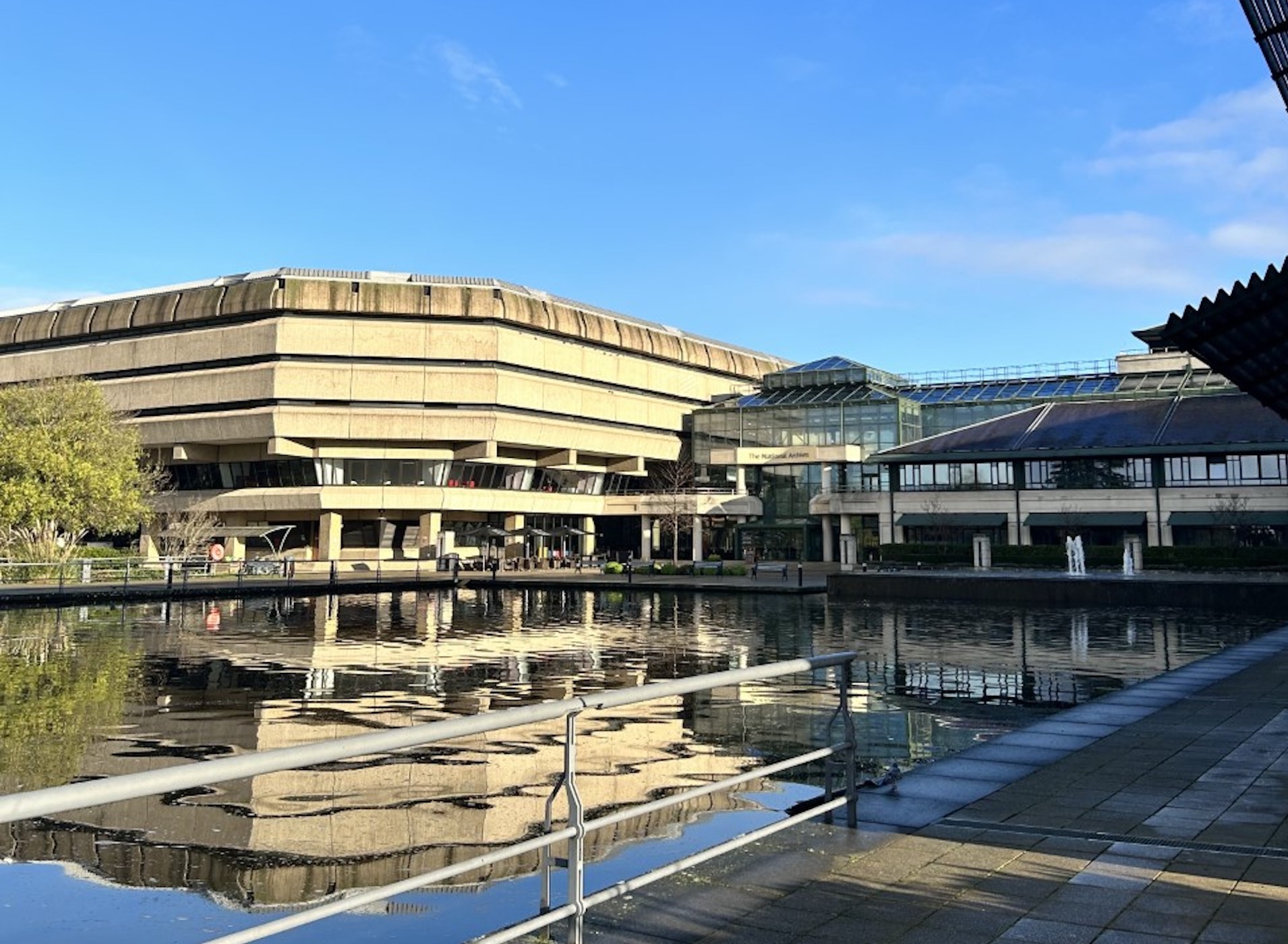
Encountering Colonial Memory in Present-Day Britain
My trip to London, funded by the Newman Exploration Travel award, was a rare blend of education, fun, and growth in my understanding of the world and of the United Kingdom’s historical memory of colonialism. This trip answered a question of mine two years in the making during my research at Washington University: why did Kenya retain the same emergency powers laws that were so harmful to the country under colonial authority? I also learned a great deal about how colonialism is remembered in the UK, how it’s memorialized, understood, talked about, and perhaps not talked about.
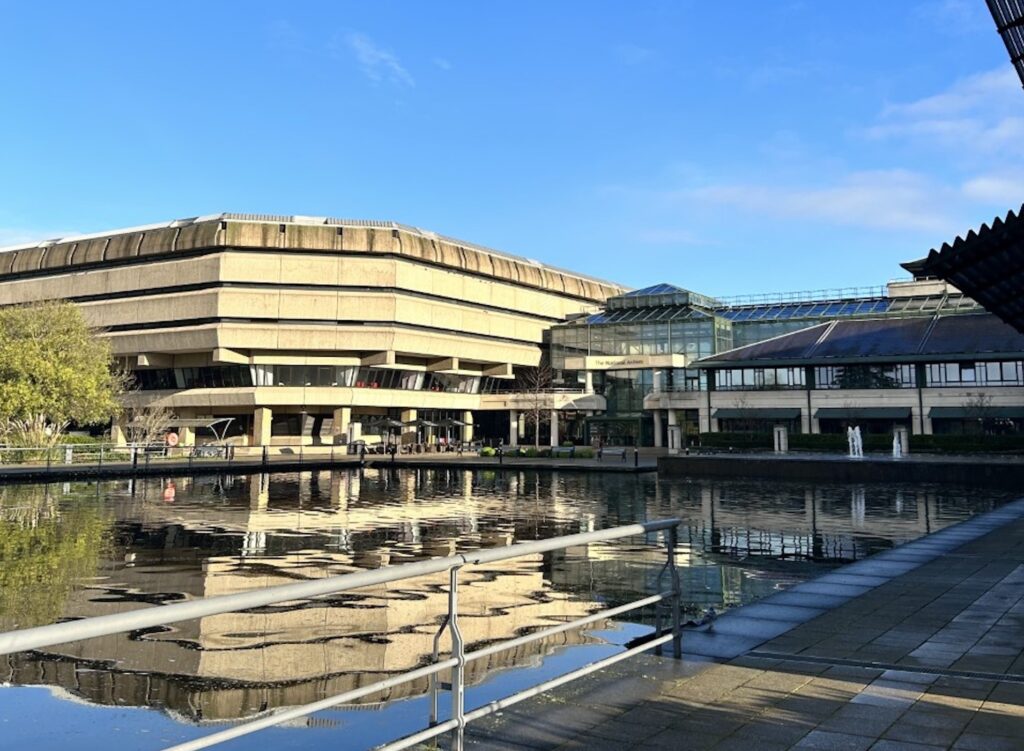
My trip began at The National Archives. The Archives are located near Kew, a district of the London borough Richmond-Upon-Thames that is quaint and wealthy. Prior to this trip, I had only engaged with the Archives virtually during COVID, where I had to order digitized copies of documents one at a time, and they took months to arrive. Last year, I was able to order five documents, and I felt like those five documents contained a wealth of information that I could hardly process in a year’s time. On my first day at the Archives, I examined and copied over 25 documents. I spent multiple days there, and each day I processed more documents than the day prior. The number of documents that had seemed insurmountable a year earlier became trivial over the course of this trip.
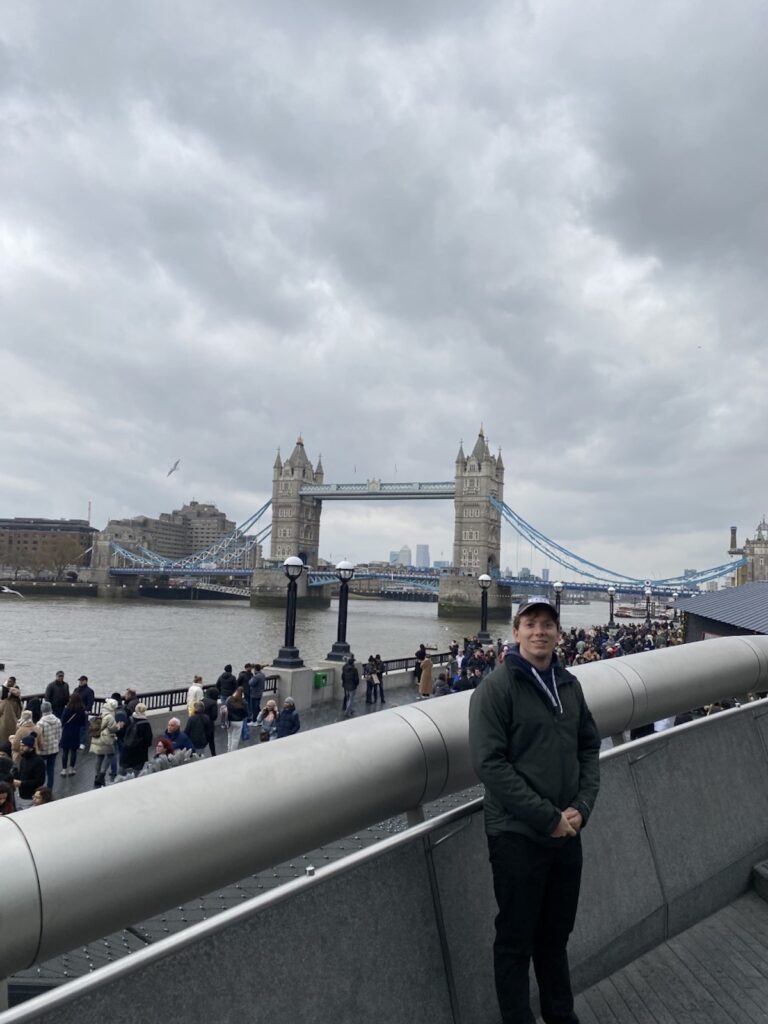
My research question, how and why did the independent Kenyan government retain an authoritarian piece of legislation from the colonial government, had been puzzling me for two full years of research. No matter where I looked, there were only passing mentions of the emergency powers legislation. My time in the Archives provided me with a direct answer to the question. I learned that the colonial government recognized that the incoming Kenyan government could keep the emergency powers if they wanted once they had power. This reality left few incentives to remove the emergency powers from the legislation before independence. The Kenyan government, led by Jomo Kenyatta as Prime Minister, desired these powers to have as much control over the central government as possible at independence. While on the surface this seems like an obvious statement, it reveals a lot about the dynamics of power and control at the end of colonization. Former colonial officials prefer to remember the history of decolonization as one of planned relinquishment of power. Really, Kenyatta and his Kenya African National Union (KANU) determined the path to independence. KANU was even supported by the first African American Supreme Court Justice, Thurgood Marshall, who traveled to Lancaster House in London and drafted the Bill of Rights which KANU adopted in its party constitution.
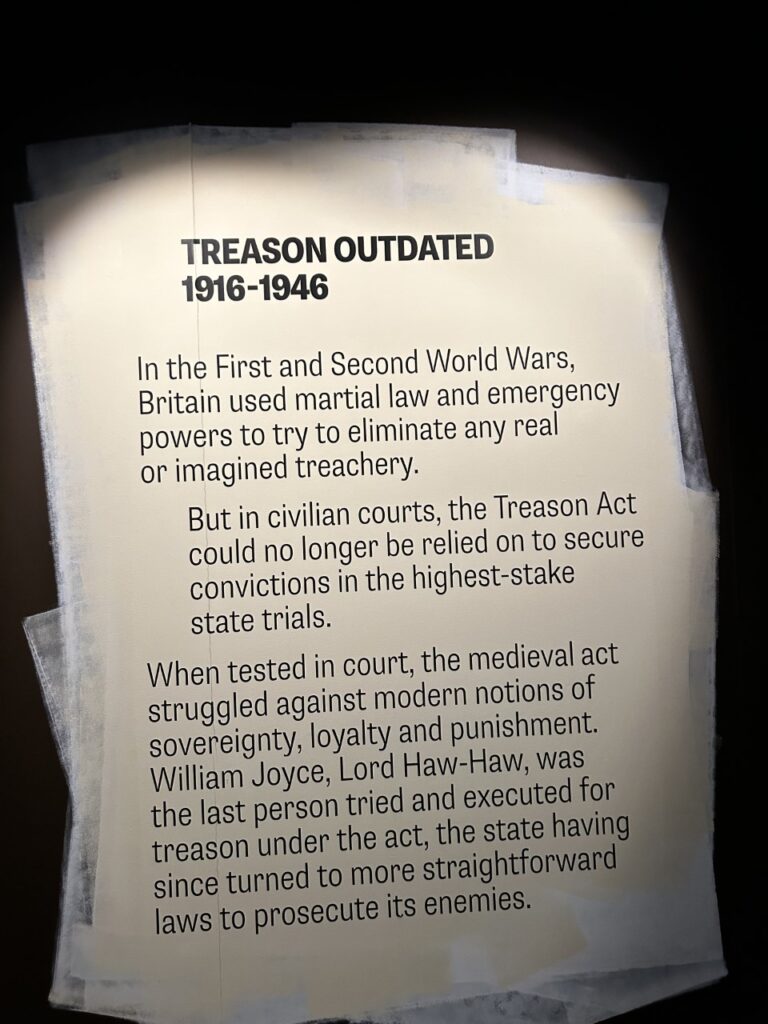
An exhibit on the history of treason at the Archives allowed me to gain a greater historical understanding of the use of emergency powers in the United Kingdom. Before Britain colonized East Africa in the nineteenth century, it used the Treason Act to control its internal population. Whenever people acted against the interests of the Crown, the Treason Act of 1351 provided punitive legislative measures. As Britain grew into a colonial power, they tried to use the Treason Act in cases like the American Revolution, where British subjects in America acted against the Crown. Uprisings in other colonial territories required new legislation, as the medieval treason act seldom held up to modern notions of law and punishment. The Emergency Powers Order in Council thus began as a method to control colonial populations during a turbulent time for Britain, during the First and Second World Wars. Many colonies like Kenya would later retain these laws for use in their own rule long after independence.
The national museums of Britain speak volumes about the legacy of colonialism without saying much at all. The British Museum is one of these national museums, one that is filled with historical artifacts plundered from around the world dating back to the B.C. years. On my fourth day, I decided to take a trip there. While I was attracted by the premise of viewing the Rosetta Stone and ancient Egyptian hieroglyphs, I was curious to visit the “Africa Room.” The “Africa Room” is on the second floor of the building’s basement, the lowest floor of any exhibit. Finding the entrance was difficult, not as simple as visiting the Ancient Rome section, or the multiple Britain rooms upstairs. I was curious to visit this room because I wanted to see how the modern British government attempts to justify its large collections of artifacts, many of them taken during colonial rule. At the entrance to the “Africa Room,” there was a large sign explaining how many of the objects displayed had been pillaged and taken to Britain, much of it during the colonial years. There was no sort of apology or promise to do better; the closest I found was another sign saying that they acknowledge the need to eventually restore some items to the current governments of former colonies.
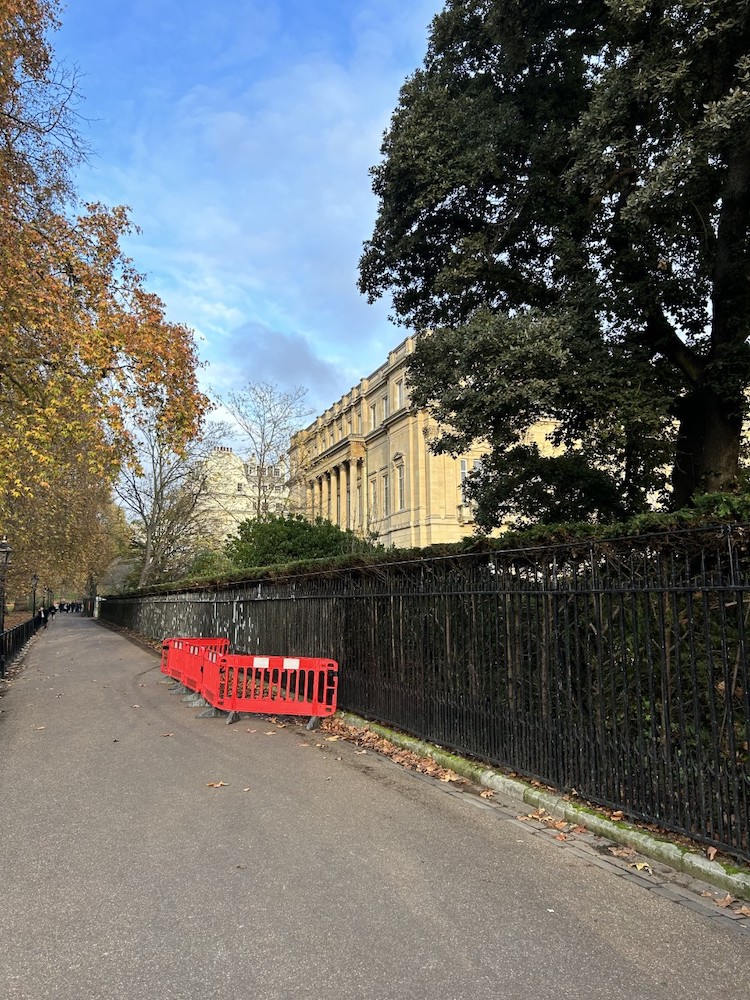
At Buckingham Palace and around Westminster Abbey, our tour saw many structures and statues seemingly to remind viewers of Britain’s stature vis-à-vis the rest of the world. They depicted the United Kingdom, and Africa, Asia, Australia, the Americas, essentially every continent in the world except for the one Britain itself belongs to. At one memorial, the names of all the former British areas of control are flanked by the word “education,” one of the justifications for entering the colonial quagmire. Buckingham Palace had similar pillars, passed by the Changing of the Guard ceremony that occurs at least four days a week.
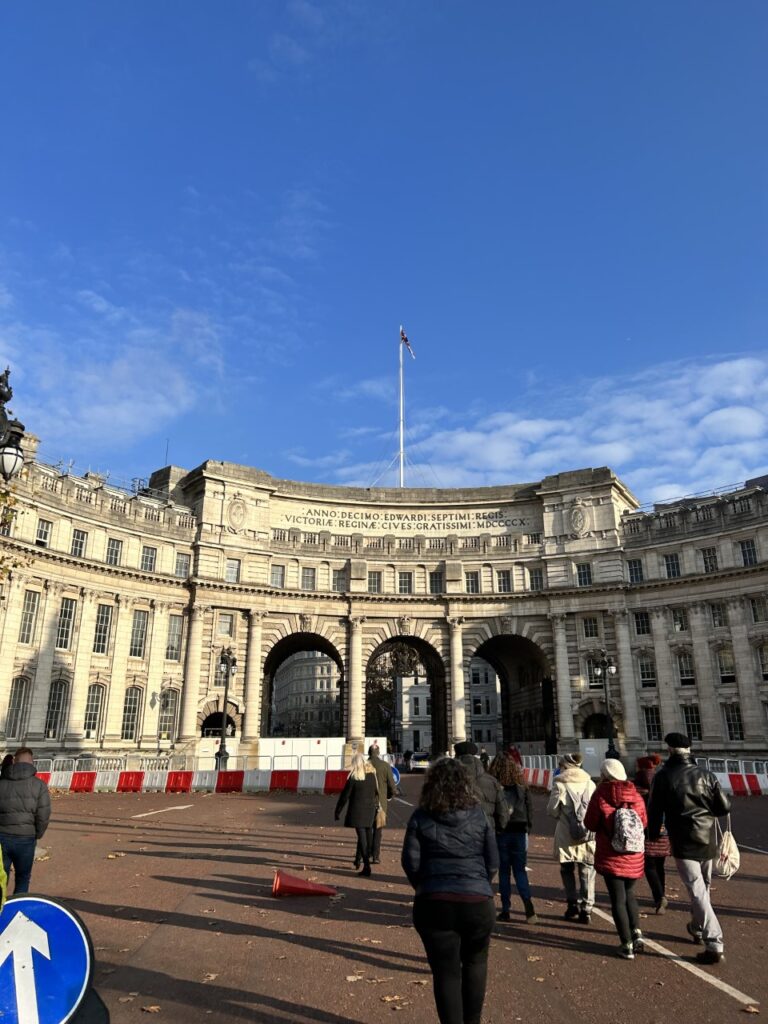
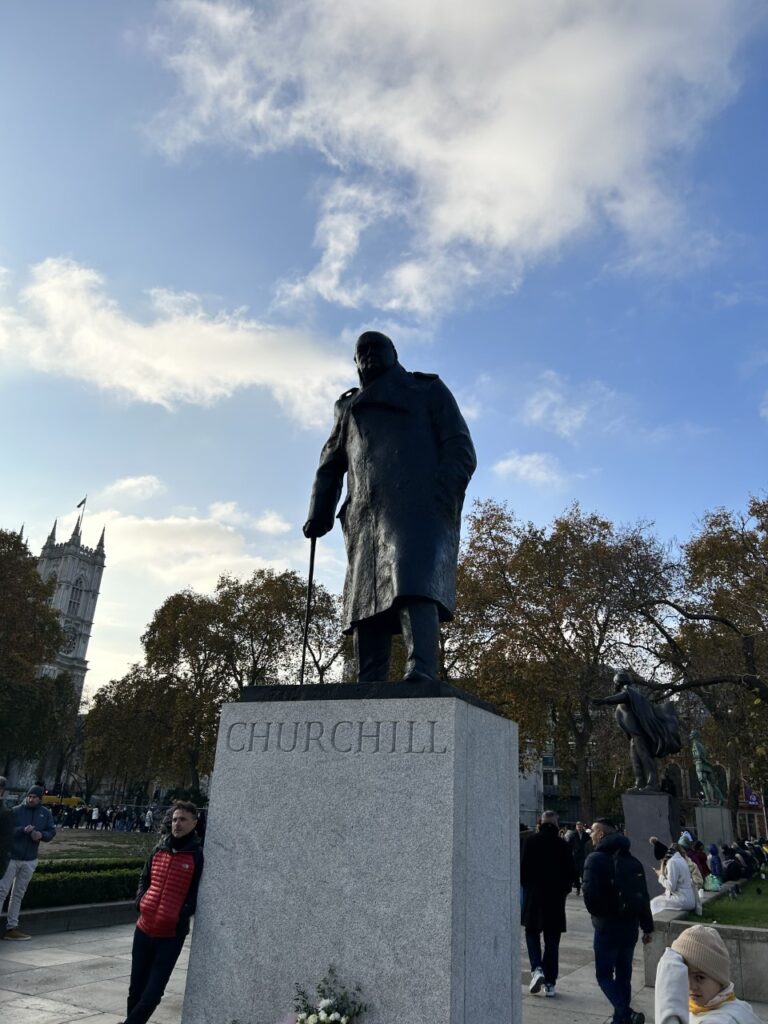
While a full understanding of colonialism’s legacies will require a trip to Kenya one day, this educational dive into the British memory of colonialism allowed me to glimpse into the psyche of a former colonizing power. This trip has not only allowed me to gain a greater individual awareness of this legacy, but through my research, I hope to provide an understanding of the emergency powers retained in Kenya to others. Without traveling to Britain, I could have never gained such a comprehensive understanding of colonialism and Britain’s role in the existing laws of former colonial powers.